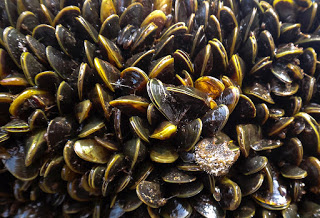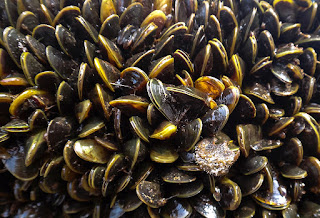
INVASIVE SPECIES EDITION—Where we take a moment to explore the species that potentially threaten the Great Lakes region.
Zebra and quagga mussels have already made homes in the Great Lakes region, but there’s another invasive clam on the horizon we should keep our sights on. While still limited to countries in South America, researchers predict that the golden mussel could colonize areas in North America where zebra and quagga mussels could not, devastating what native clam populations remain.
Because they are filter feeders, golden mussels greatly deplete the amount of suspended material in a water column, which in turn depletes the water’s oxygen levels. The end result is an ecosystem that favors detritivores and invertebrates like leeches, caddisflies, and other species that can live in the nooks and crannies golden mussels create, and are able to feed on golden mussel fecal matter. And native clam species stand little chance of survival as golden mussels have been known to surround and grow on top of them, starving them to death by sealing them shut.
As with most invasive species, the success of the golden mussel is rooted in its versatility. A freshwater clam, it can survive in higher temperatures, lower pH levels, and higher salinity than either zebra or quagga mussels. Although no effective method of control has been established, research is being conducted on the potential for sterilization via genetic modification.


